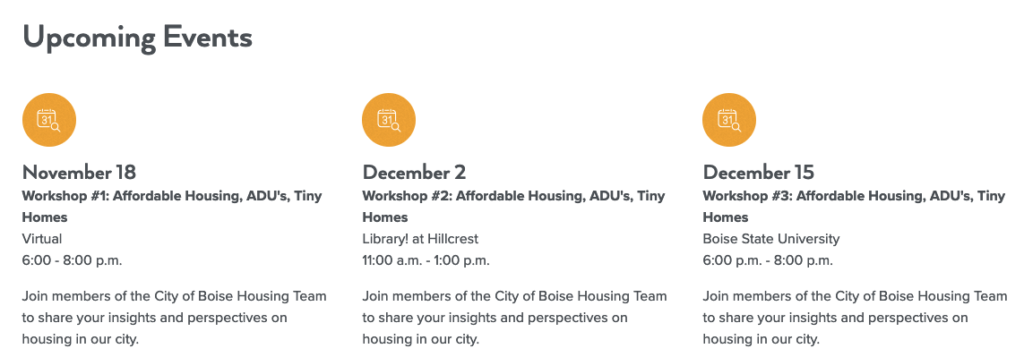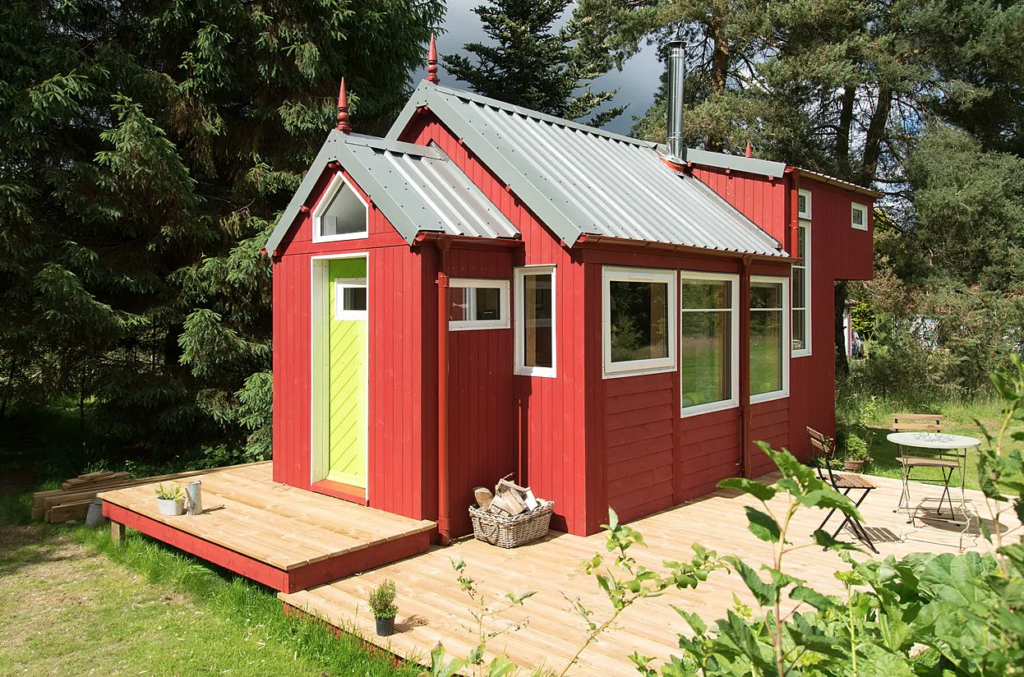Call To Action: Neighborhood Listening Sessions
The City of Boise is facing a housing crisis. While we are focused on ensuring there is a place to live for everyone who chooses to call Boise home, at every price point, it will take innovative solutions and committed partners to build homes for Boiseans.
Over the next several months, the City of Boise housing team will be out in the community – both in-person and virtually – to meet with residents and hear first-hand the impacts of housing affordability on them, their families and neighbors.
Tiny Home And ADU Pilot Program
The City of Boise is currently re-evaluating underutilized spaces to determine strategic opportunities that include Accessory Dwelling Units (ADUs) and tiny homes. The city will present the Tiny Home + ADU pilot program and seek input on how this solution could be incorporated in the community. Findings from these sessions are shared with the Mayor and Boise City Council to help inform future decisions to meet the growing needs of the community.
Attend An Event

Learn About Accessory Dwelling Units ( ADUs )
The purpose of an Accessory Dwelling Unit (ADU), also called a “mother-in-law suite,” is to provide more affordable housing with minimal costs and disruption to existing neighborhoods while maintaining the single-family character of the primary home. ADU applications are reviewed administratively by the Planning Team and ensure that the ADU meets the standards in the Zoning Ordinance. Every project is unique and additional steps/requirements may be required. Prior to submitting an ADU application to the City, the applicant is encouraged to contact Planning and Development Services to verify if the proposed ADU project complies with all applicable zoning requirements.
What is an Accessory Dwelling Unit?
Accessory Dwelling Units (ADUs) are a second, smaller dwelling that can be built on a property already occupied by a single-family home. They are often called “mother-in-law suites”. The intent is to provide more affordable housing and increase density while maintaining the single-family dwelling character of the property. Boise City Code for ADUs can be found online at citycode.cityofboise.org under Section 11-06-03.1(A). ADUs in the Historic District require a Certificate of Appropriateness prior to submittal of an ADU application.
ADUs are not “tiny homes on wheels,” as these mobile dwellings are considered recreational vehicles or campers by the city’s development code. Such tiny homes are prohibited from being classified as ADUs by the city’s development code. Additionally, due to the mobile nature of tiny homes on wheels, they pose additional regulation challenges in terms of building safety, life safety, and relevant area design standards.
Requirements
- No larger than 700 square feet or 10% of the lot size, whichever is smaller
- Ongoing owner occupancy of either the primary residence or the ADU is required, enforced by a deed restriction
- No more than 2 bedrooms
- Two-bedroom ADUs must provide one additional dedicated parking space on site in addition to the two required parking spaces for the single-family dwelling outside of setbacks per zone.
- Impact fees for accessory dwelling units shall be assessed at a portion of the standard single family residential fee as determined by the applicable agency
- Notification of the adjacent property owners and occupants, including properties across streets and alleys, must be submitted with the application
- The application and submittal requirements checklist can be found above


